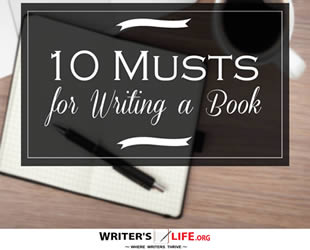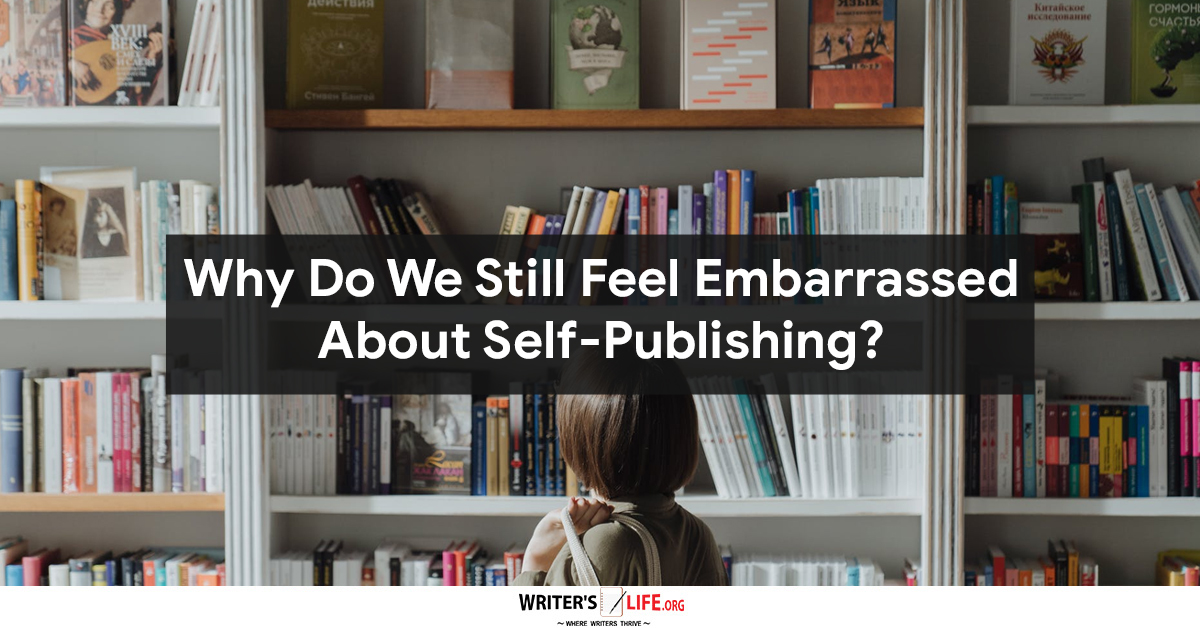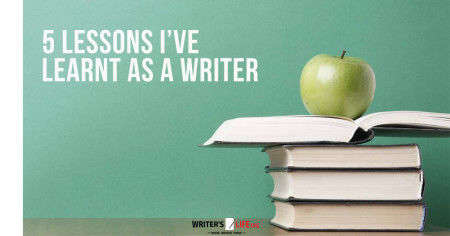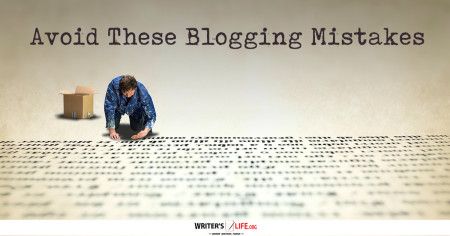- How To Tackle Jealousy In Creative Writing
- Common Submission Mistakes
- How To Stop Your Blog Becoming Boring
- The One Thing Every Successful Writer Has In Common
- How To Make Yourself Aware Of Publishing Scams
- Why Almost ALL Writers Make These Grammar Mistakes At Some Point
- 5 Tips For Authors On How To Deal With Rejection
- Top Mistakes to Avoid When Writing a Novel
- How to Avoid Common New Writer Mistakes
- 10 Mistakes New Fiction Writers Make
10 Musts for Writing a Book

"Share, Like or Tweet If You Love Writing"
1. Take one fabulous idea
It's impossible to overstate the importance of your concept in terms of how successful your book becomes. Stephenie Meyer writes perfectly good, competent prose - but her story idea (ordinary girl falls for sexy vampire) turned her book into a cultural phenomenon. Dan Brown, Stieg Larsson, Stephen King are all similar: decent writers blessed with stunning ideas.
Agents know this and - no matter what your genre - a strong premise is essential to selling a book. Given any two broadly similar manuscripts, agents will almost always pick the one with the stongest central cocept.
So how do you get your genius ideas? And how do you know if they're good enough? The answer to the first question is that you can get your ideas from this post on our blog - and you can check if they're good enough by seeing what they sound like as an elevator pitch: a short 50 word summary of your novel. "A school for wizards"? Four words in and that's sounding good ...
2. Build yourself a blistering plot
The next huge essential for any novelist is a story that simply forces the reader to keep turning pages - and fortunately there are definite rules about how to achieve this. The two crucial rules are:
A) Give the protagonist a major life challenge very early in the book and don't resolve things till the very end; and
B) If a particular chapter doesn't advance the story in a specific way, you have to delete that chapter.
Sounds simple? Well, actually, the principles aren't that hard to understand, although executing the advice can a wee bit trickier. Meantime, we suggest you go into the subject in a bit more depth via our main plotting advice, some useful follow-up advice - and guest blogger Gary Gibson's magnificently illuminating suggestions about what to do when you hit a problem.
3. Next ingredient: an unforgettable character or two
Long after a reader has forgotten the details of a plot, the chances are they'll remember the character who impelled it. The two things you absolutely have to bear in mind when constructing your characters are:
A) Make sure that the character and the story bounce off each other in interesting ways. So if, to take a stupid example, your character has a big fear of spiders, the chances are that your story will have to force your character to confront those fears. You have to bring your character into their zone of greatest discomfort.
B) Make sure that you really, really know your character. After all, it's seldom the big things that make a character sizzle with life (Amy is a 32, slim, blue-eyed, retail buyer - who cares?). It's the little things that make her seem human (Amy has a passion for Manhattan in winter; she fell off a horse when she was 12; she collects a shell from every beach she's ever visited.) If you want to check if you know your character well enough, we suggest you use our ultimate character builder.
One more thing that matters is where you place your camera. Do you write in the first person? The third person? Do you have one viewpoint or two or ten? These can be quite tricky issues and we strongly recommend that you check out this item on points of view. Also (and this is a bit more advanced) do check out Emma Darwin's sage advice on psychic distance. (Emma is one of our fine editors, but this page is from her own website not ours.)
4. Don't forget to give your character some inner life
One of the commonest problems we see is when a character does and says all the right stuff ... but the reader never really knows what he or she thinks or feels.
And this is one of the very simplest things for a novelist to do. You just need to remember that your protagonist has a rich inner world - and you need to tell us about it. Not just the bland everyday things either ("Mike felt hungry so he sat down to eat"), but the things thatmake him different and unique. Get more inner worldy advice.
5. Dramatise, dramatise, dramatise!
Your job as a novelist is to show the action unfolding on the page - readers don't just want a third hand report of what has just happened. That means you need to tell the moment-by-moment, as though you were witnessing the event. Consider the difference between this:
Ulfor saw the descending sword only in a blur of silver and black against the sky. He swivelled his shoulder in an effort to escape, hoping that the armour on his back would guide the blade harmlessly away. But the swordsman above, a swarthy little troll with yellow teeth and a spitting grin, was too fast, too agile .. [etc. This form of narration is known as "showing"]
And this:
Ulfor was badly injured in a swordfight. [This form of narration is known as "telling"]
The first snippet sounds like an actual story; the second sounds like a news report. Obviously you will need to use the second mode of story telling from time to time, as a simple way to convey facts and speed things up, but for the most part your tale needs to consist of scenes of dramatic action glued together with bits of more economical narration. It's crucial that you understand this right, so if in doubt check out our guide.
6. Write well
OK, we know this sounds obvious, but it's no good having a fab idea and a brilliant plot if you can't write good, clear English. Your book is made up of sentences and if those sentences don't convey your meaning succinctly and clearly your book just won't work.
Fortunately, almost everyone has the capacity to write well enough: you just have to focus on the challenge. In particular, do think about the three building blocks of good writing:
A) Clarity. You need to express your meaning clearly.
B) Economy. Never use ten words when eight would do.
C) Precision. Be as precise as possible - and that normally means you have to see the scene clearly in your head before you can describe it clearly to a reader.
We've put together a basic style guide - if you follow that you won't go far wrong - and while we're at it, you may as well make sure:
D) that your novel boasts a lovely sense of place.
E) that your dialogue sparkles. (Quite easy to achieve, actually, and it really strengthens a book).
F) and that your manuscript is well presented. No rogue apostrophes, please!
7. What if I'm writing for children?
Most of the rules apply no matter what age group you're writing for - but we've put together a collection of our best advice for children's authors, including help on how to get a literary agent who's right for you and your work. Writing for children advice. If you want a super-short summary though, then we suggest:
You write clearly. If your style isn't instantly clear, kids won't have the patience to stay with you. If in doubt, keep it simple.
You write economically. Same thing here. If you waste words, if a chapter doesn't immediately drive the story forwards, you'll lose readers. Keep it taut.
You write warmly. Children flocked to Harry Potter for JK Rowling's ideas and inventiveness, but they stayed with her because of her warmth. Follow her example!
You write with humour and a bit of mischief. Kids want humour and they want books to break rules that they wouldn't dream of breaking in real life. Think of your favourite children's books and you'll almost certainly smile.
Oh, and don't forget that you don't have to go it alone. We have a fab short writing for children course which is led by a very successful children's author and which will allow you to learn in company of other writers like yourself. Learn more here.
8. Reached the final fullstop? Congratulations! You're (almost) halfway there.
Hemingway once said, "The first draft of anything is shit," and he's right, you know. Nearly all first drafts will have problems, some of them quite profound. And that's OK! A first draft is really just your opportunity to get stuck in on the real business: which is refining and perfecting the story you've just told yourself.
The chances are that you have not properly succeeded in following the rules above, so now is a pretty good time to go back over these advice pages and check (and we mean really check) that you've made full use of their wisdom. You'll find that a lot of these things are circular: you'll use the same advice again and again, but make more profound use of it each time round.
The Writers' Workshop sees hundreds of new manuscripts every year and we've got pretty good at recognising the commonest problems. So much so, in fact, that we've put together a checklist of the fifteen most common problems. Most of those things are fixable, so you don't need to worry too much if some of those issues apply to you. The thing is simply to figure out what the issue is, then sit down to address it. Remember that all successful novelists started the same way as you did: with a bad manuscript. The difference between the successes and the failures is, as often as not, little more than hard work and persistance.
9. Get help!
Writing a book is hard work. It's lonely. Those around you are seldom equipped to offer expert feedback and advice - and, of course, this is a difficult road: most first novels do not get published.
So please don't try to go it alone! The Writers' Workshop offers loads of ways for you to get the help you need. If you want to build your skills, then the place to start is with one of our courses:
Creative Writing Flying Start. A brilliant,short, taster course that will get you going.
How To Write a Novel A comprehensive course for those certain they want to embak on a full scale work of fiction. We also have a super-detailed ten week version of the same thing.
Self-editing your novel. If you've finished (or are close to finishing) your novel, then this course is a brilliant way to learn the editing skills
If you've finished your novel, however, then the most direct route to improving it is to get detailed editorial advice on what's working, what isn't yet working - and what to do to fix it. This kind of feedback is the gold-standard way to improve your writing, and of course all our editors are sucessful authors themselves, so they know how to add value. Nothing, but nothing, improves a novel as much as tough but constructive editorial advice - so go get it today.
10. Get a literary agent - and a book deal
Literary agents only take about one book in a thousand, so before you take this final step we do suggest that you've completed numbers 1 to 9 properly! That said, if your novel is good enough, you will find it easy enough to secure representation. Just follow these steps:
A) Select your target agents. Our sister site, Agent Hunter, has a complete list of UK literary agents and you can filter all the data by genre, agent experience and much more. It's the cheapest and most complete source of its kind.
B) Choose about 8-12 names. You're looking for agents who are keen to take on new writers and who are active in your area. If they happen to represent authors you love, then so much the better.
C) Write a fabulous covering letter. Using this advice and this model letter by way of example.
D) Write a good, clear synopsis. A process that terrifies most writers but which is easier than you might think - as long as you follow these simple rules.
E) Get your stuff out there - and good luck!
Originally posted as "How to Write a Book - Writing a book, editing it, selling it." on writers workshop.co.uk. Photo by darlinglovelylife.com.
URL: http://www.writersworkshop.co.uk/how-to-write-a-book.html
"Love Writing? Then Share, Like or Tweet This Article"





















